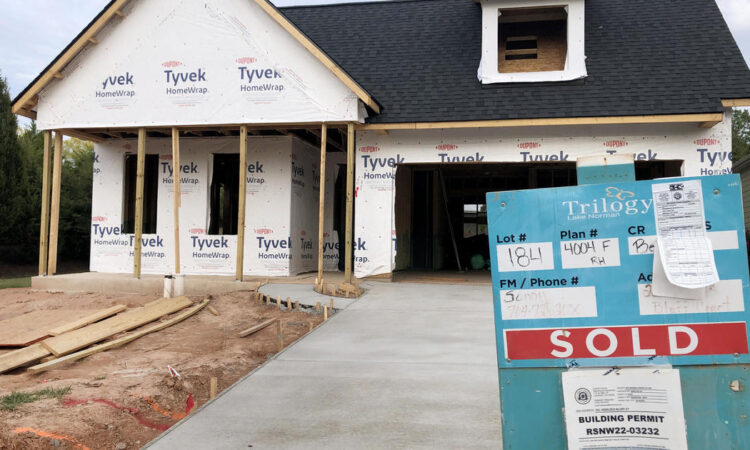
Surging mortgage rates aren’t just raising the cost of purchasing a new home. An alarming number of recent homebuyers have discovered they already owe more on their property than it’s worth, according to a new analysis.
Some 250,000 people who took out a mortgage this year to buy a home are now underwater, meaning they owe more on their loan than the home is worth, Black Knight, a mortgage software provider, found. Another million have less than 10% equity.
Those unlucky homebuyers got caught in the crunch between historically high housing prices and rapidly rising mortgage rates, which in recent months have caused real estate values to slide.
While the portion of underwater mortgages is still historically low, “a clear bifurcation of risk has emerged between mortgaged homes purchased relatively recently versus those bought early in or before the pandemic,” Black Knight said.
All told, 8% of mortgages taken out this year are underwater — about one in 12 homes purchased in 2022.
The jump in mortgage rates this year has played a part. Rates have more than doubled this year, rising to an average of 6.3% — a multi-decade high — weighing on home sales and prices.
Although it’s not unusual for new homeowners to be underwater for a brief period, especially if they buy during the summer when prices are elevated, “It is much more pronounced this year than it normally is because prices are starting to cool,” said Andy Walden, Black Knight’s president of enterprise research. The portion of underwater borrowers tripled in October, he noted.
The situation is much worse for homebuyers who purchased with government-backed mortgages, with 25% of those buyers this year now underwater, according to the report.
In Colorado Springs and Honolulu, more than 30% of mortgaged homes bought this year are underwater. In Virginia Beach, about 22% are worth less than what is owed. The figure is 20% in the California cities of Bakersfield, Riverside, San Diego and Stockton — cities with a large military presence where many people buy homes with government-backed mortgages.
“It’s not actually markets that are seeing prices come down the most — it’s markets that are using more of this low down payment types of lending” that are most affected, Walden said.
FHA mortgages, as well as mortgages backed by the Veterans Administration, allow homebuyers to buy property with small down payments — as low as 3% for an FHA loan or none for a VA loan. That helps lower-income purchasers who typically don’t have much money saved for a down payment, but it becomes a liability when home prices fall rapidly, keeping people stuck in their homes.
“Unfortunately the folks who first get hit when home values go down are those who couldn’t put down a lot,” said Selma Hepp, lead economist at CoreLogic.
Being underwater becomes a bigger problem when homeowners have trouble paying their debt — a data point that’s also rising.
“You’re seeing borrowers who took out mortgages in 2022 becoming delinquent earlier,” Walden said. “They’re stretched a little bit more, you see higher debt-to-income ratios, and you’re seeing this increase in early-stage delinquencies. That does become a problem if you’re delinquent,” he said.
While both measures of distress are historically low, Walden says, they’re both on the rise. With mortgage rates likely to keep increasing as the Federal Reserve continues hiking interest rates, Walden is concerned that more people will fall underwater.
“I expect it will get worse,” he said. “As prices continue to soften, the expectation is you could continue to see these underwater properties rise.”






